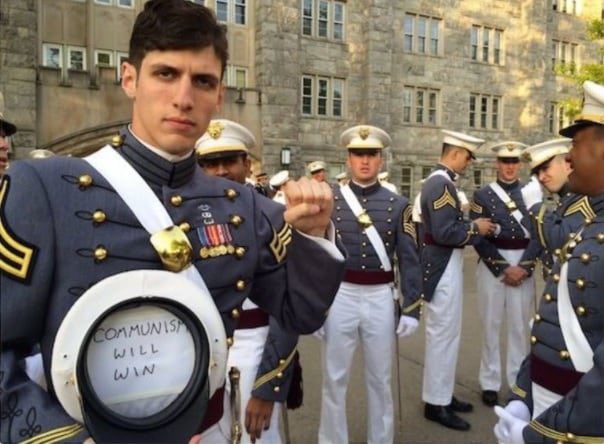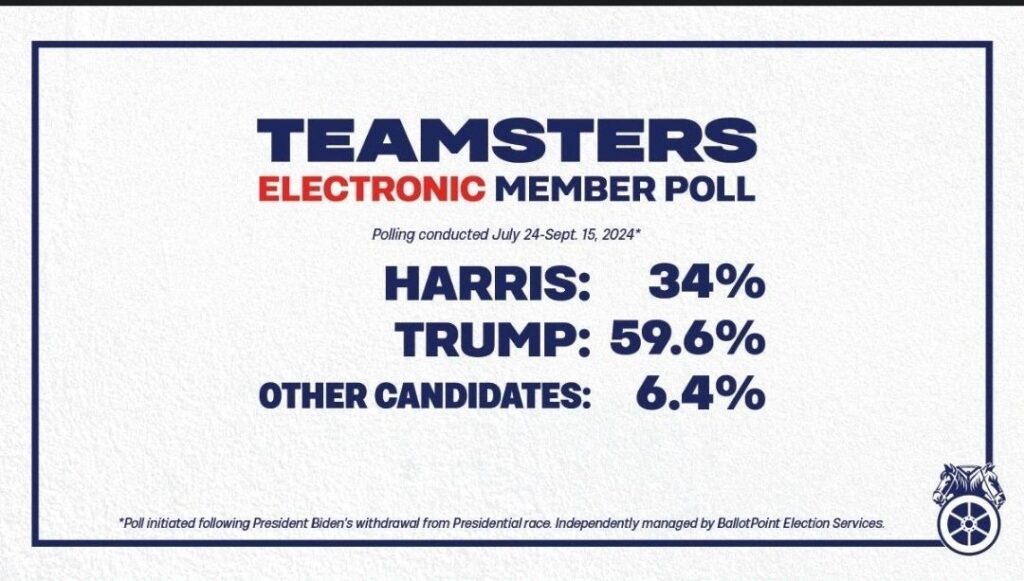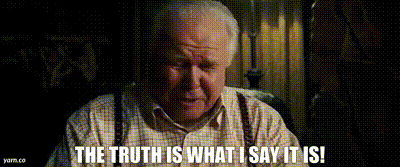To those who claim that the military won’t hunt down people on the right, simply because the President orders it:
and this guy.

To those who claim that the military won’t hunt down people on the right, simply because the President orders it:
and this guy.

In a move that somehow simultaneously supports racism, sexism, Communism, and vote buying, Kamala Harris announced her “Opportunity Agenda,” (pdf alert) which is (in part) to make one million forgivable loans in the amount of $20,000 available only to black men. The agenda has the following goals:
Kamala hates America. Listen to her speech from yesterday:
But just to clear this up:
Trump paying for a woman’s groceries is vote buying, and Trump should be tossed in jail for it. Harris promising tax money to black male voters so they can take their drug dealing legit is brave and courageous, and she should be commended. Got it.
Blogs aren’t really news, because they don’t have editors to make sure that they are factually correct. The MSM is so much more factual, because they constantly fact check themselves, and no, the picture isn’t the problem.

The problem is that every single one of the five rifles is currently in use and is roughly a 5.56mm. No mention of the Mauser, or even the Mosin Nagant. More than 100 million copies of those weapons were made, and they have been used in virtually every armed conflict for about 100 years, including two world wars.
From Joe over in North Central Idaho, we find out that “veterans” claiming to be antigun are actually paid spokespeople. I posted about the Harris campaign paying crowds of people to fill a restaurant and fawn all over her. She is paying people to fill social media with posts about how great she is.
Her entire campaign is being created by burning through large amounts of cash. She is raising gobs of money. She has four corporate donors who have each given her campaign a million dollars or more:
The US government has donated over $2 million to her campaign. (DOD, Dept of Veteran’s Affairs, HHS, etc.) As of August 21, the Harris campaign has spent $442 million. In four weeks, she spent nearly half a billion dollars. One thing to note is 58% of the money has come from big money donors. What is the money being used for? The largest media campaign I can ever remember seeing- to include paying people to post on social media, as well as big names donating their time (Oprah, Taylor Swift, etc.) and the big networks (MSNBC, Facebook, etc.) getting her message out there.
In all, the Biden campaign spent $3.1 billion on the 2020 election, four times what Trump spent. Kamala will be close to that, but will have spent that cash in less than 4 months. As for Trump, he is already being outspent by at least a 4 to 1 margin.
I was giving blood to a patient last night while she and her husband were watching the Oprah/Harris infomercial on MSNBC. It was set up to look like a town hall, but it was as scripted as any Kabuki theater. I have to admit that, as propaganda, it was well done. They hit all of the talking points and spent an hour doing nothing but making Trump look bad while making it seem as though Harris was the only way to prevent him from killing everyone that isn’t white.
Staying in that room and keeping our mouths shut was a skill that we are all going to have to learn at some point. In the area within one mile of my house, there are three Harris/Walz signs and two Trump signs. The rest of the houses with political signs out front are for other races, such as town commissioner or State Senator, and there aren’t many of those.
Still, keep track of who is supporting whom. Knowing who you can trust to be an informant is a handy bit of information to have. Informants are soon to be everywhere. It is becoming more and more obvious that my predictions are going to come true. Trump will not ever again see the inside of the White House. I’m going to vote because it doesn’t cost anything, but I don’t think it will matter.
We are headed for the big collapse.
The teamsters voted to support Donald Trump.

With those numbers, the national teamsters union announced that they would not be endorsing any candidate.
“While the Executive Board of the Teamsters is making no formal endorsement, the vast majority of rank-and-file working men and women in this important organization want President Donald Trump back in the White House,”
Then, the state offices of the teamsters in Pennsylvania, Wisconsin, Michigan, Nevada, California, Hawaii, and Guam all decided to support Harris. I guess this is how the democrats support democracy- they are all for it, until they don’t get their way.
I just posted this a couple of days ago. Now it seems that California has made it illegal to post anything that they deem to be untrue.
The left glorifies violence. They will attack, punch, or even attempt to murder anyone who disagrees with them. Case in point:
They want to place you in a camp, attack you, have you fired, or even kill you for daring to oppose them. They are keeping a list. Boy, do they go nuts when the other side keeps lists of their own. I have driven every street within a 1 mile radius of my house. I know who every Harris/Walz yard sign belongs to. You should do the same.
In the above case, this “Moddy” character claims that he is straight, but beat the shit out of a guy in a bathroom for making fun of trannies. This is the reason why I carry a gun. If you attack me, I will use whatever force is required to stop your attack. That will probably mean that your ass is catching some projectiles when you attack me. Does that mean that I am violent? I’m not usually, but attack me or my family, and you bet your ass I am. FAFO.

The Democrats’ VP candidate has this to say:
But how do we know what is true, and what is misinformation?

Burning the flag is protected speech, but signing one should get Trump indicted again?
If it weren’t for double standards, the left would have no standards at all.
There is a scene in the movie Gardens of Stone where they are talking about the Vietnam war. The younger character says that the US can’t lose, because the VC are shooting at helicopters with arrows. The older one replies with, “How do you fight an enemy who is so dedicated that they are willing to fight helicopters with bows and arrows?”
I used to say the same thing about Islamic terrorists. They are willing to send their children into a crowd with a bomb strapped to their backs in the hope that when their child is blown up, several others will be taken out with them. How do you fight someone who is so fanatical that they are willing to sacrifice their child to score a few points?
That’s how I felt when I heard this speech:
You hate the right so much that you wish your child had been killed by a white man instead of by an illegal, just so you can blame those you hate for his death.
There is no way to reason with or negotiate with people who hate you so much that they are willing to sacrifice their children in order to score some PR points.